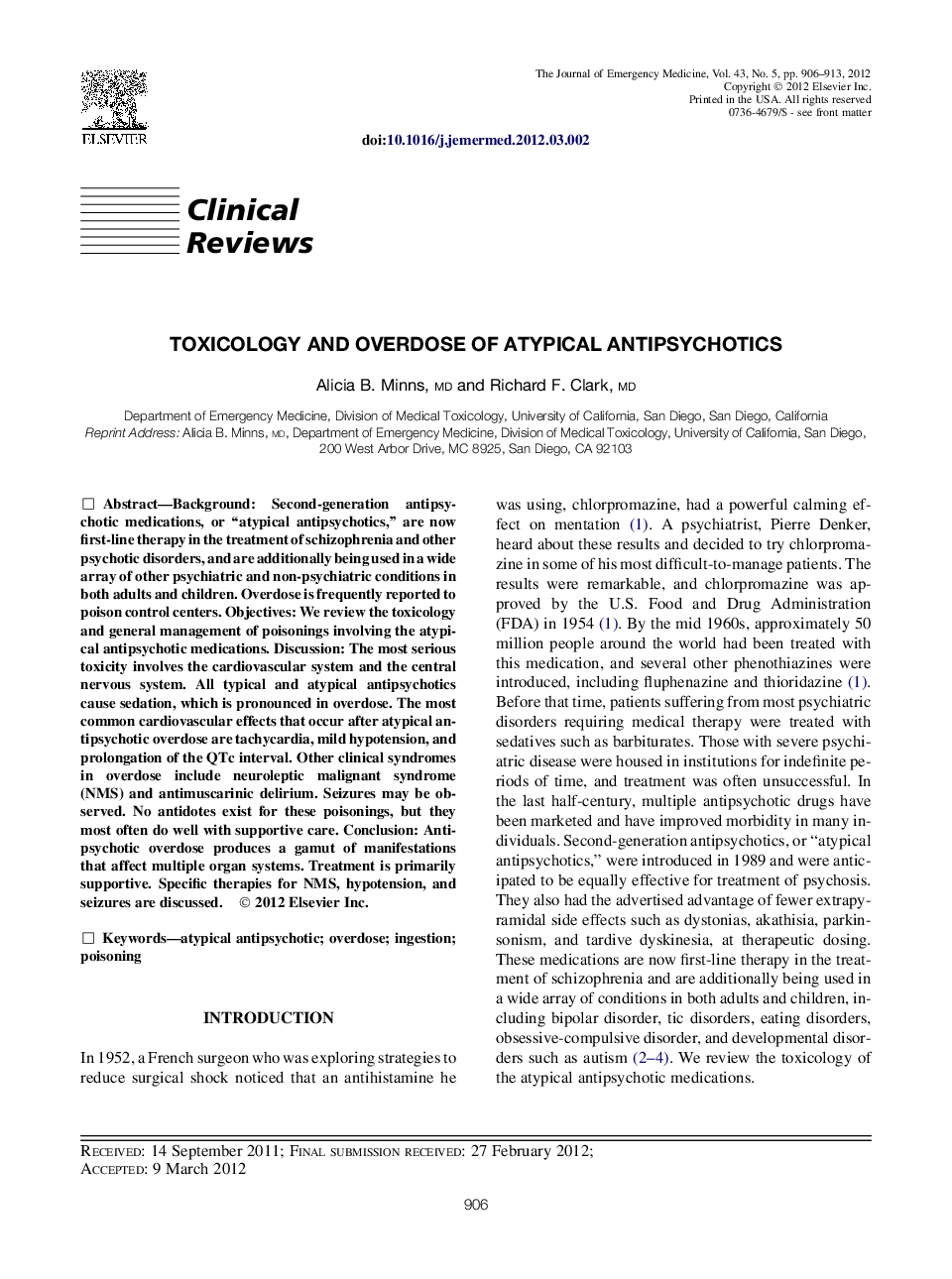| کد مقاله | کد نشریه | سال انتشار | مقاله انگلیسی | نسخه تمام متن |
|---|---|---|---|---|
| 3248787 | 1589155 | 2012 | 8 صفحه PDF | دانلود رایگان |

BackgroundSecond-generation antipsychotic medications, or “atypical antipsychotics,” are now first-line therapy in the treatment of schizophrenia and other psychotic disorders, and are additionally being used in a wide array of other psychiatric and non-psychiatric conditions in both adults and children. Overdose is frequently reported to poison control centers.ObjectivesWe review the toxicology and general management of poisonings involving the atypical antipsychotic medications.DiscussionThe most serious toxicity involves the cardiovascular system and the central nervous system. All typical and atypical antipsychotics cause sedation, which is pronounced in overdose. The most common cardiovascular effects that occur after atypical antipsychotic overdose are tachycardia, mild hypotension, and prolongation of the QTc interval. Other clinical syndromes in overdose include neuroleptic malignant syndrome (NMS) and antimuscarinic delirium. Seizures may be observed. No antidotes exist for these poisonings, but they most often do well with supportive care.ConclusionAntipsychotic overdose produces a gamut of manifestations that affect multiple organ systems. Treatment is primarily supportive. Specific therapies for NMS, hypotension, and seizures are discussed.
Journal: The Journal of Emergency Medicine - Volume 43, Issue 5, November 2012, Pages 906–913